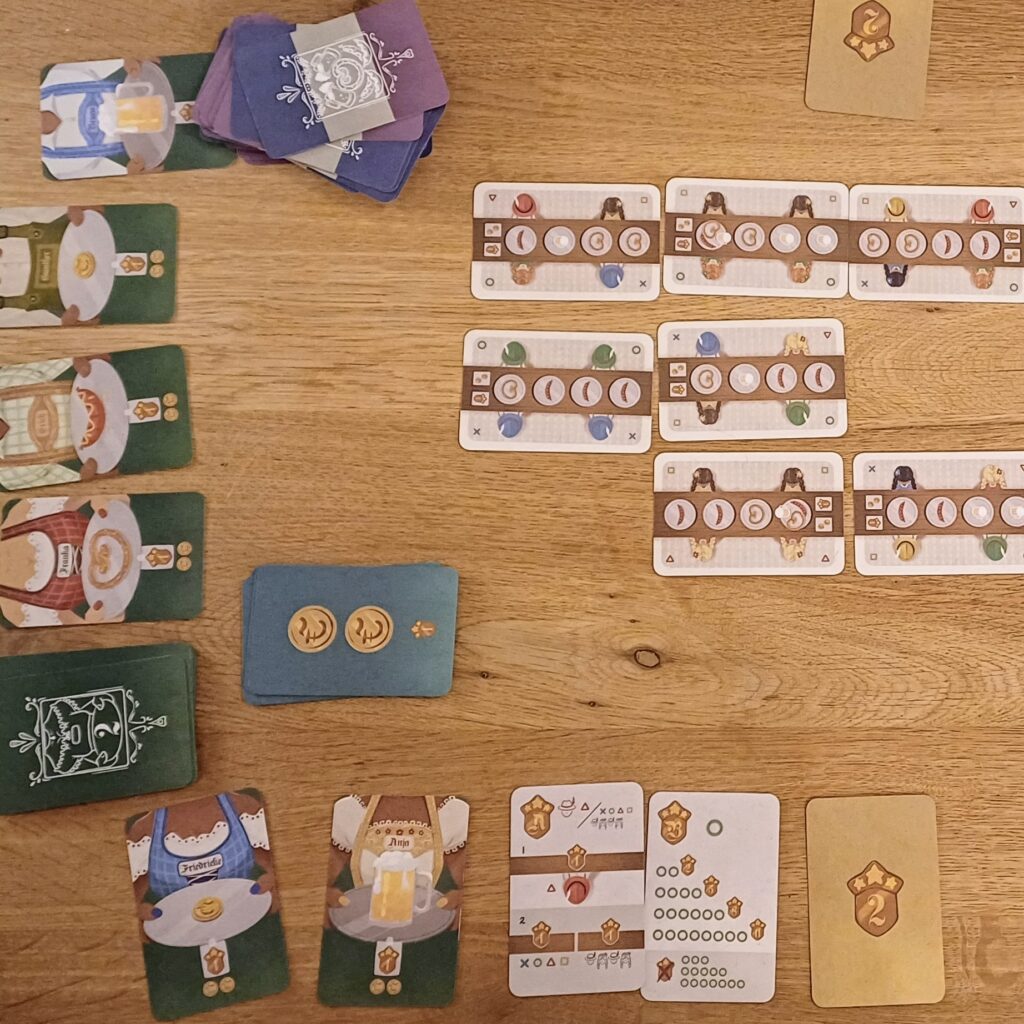Ein Prosit, ein Prosit
Der Gemütlichkeit
Ein Prosit, ein Prosit
Der Gemütlichkeit
A litre of beer, a pretzel and a sausage, that is all it takes to keep Oktoberfest-goers happy in Heroes of Oktoberfest. The women are in dirndls with braids in their hair and the men are in lederhosen with a traditional hat on, just as they should be in real life. Unfortunately, these days only about 60-70% still walk around in traditional attire at Germany’s biggest beer and folk festival in Munich.
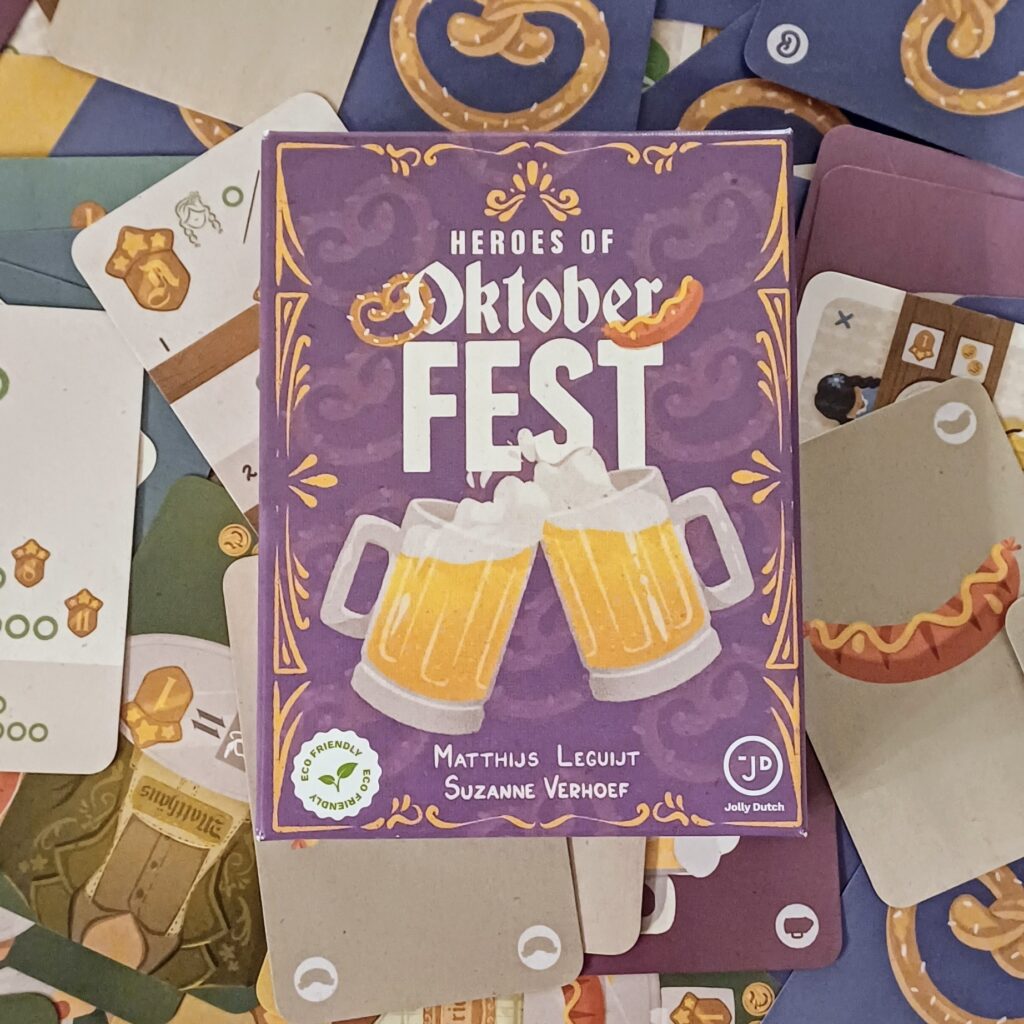
Heroes of Oktoberfest is a tribute to the absolute heroes of every edition of Oktoberfest: the servants. While the game could also have been called (just) Oktoberfest, a conscious decision seems to have been made to emphasise the individuals who make Oktoberfest possible. Not only in the title of the game do the servants figure prominently, even in the game itself you need them to win at all. The servants have been given typical German names such as Günther, Heidi and Helmut. But there is one item that I have to point out: there are eleven Männer in the game and only eight Frauen, while everyone knows that during Oktoberfest the women can carry the most beer at the same time, as all the videos on the internet prove. Perhaps the female German names captured the imagination less. Anyway. Heroes of Oktoberfest is played by two players. Not entirely surprisingly, the player with the most points, wins the game and may call himself (unofficially) Herr oder Frau Oktoberfest.
Among the playing cards are coin cards, victory point cards, goal cards, hero cards (there they are again!), beer table cards and product cards (beer, pretzel or sausage). First, the game must be set up. Four hero cards are placed face-up in the market. Next to them, a deck of coin cards and a covered deck of product cards are placed. On the other side, the market of four beer table cards is laid out to create one long beer table. Next to it, a covered stack of beer table cards is placed. Both players start with one hero card, four product cards and two goal cards (one from A and one from B). The interesting thing about this is that the goal cards as well as the hero card are placed face-up, so the other player can also see what cards the opponent has. In the middle, a space of three rows of four beer table cards should be kept free. This is the (beer) festival. The starting player beginnt.
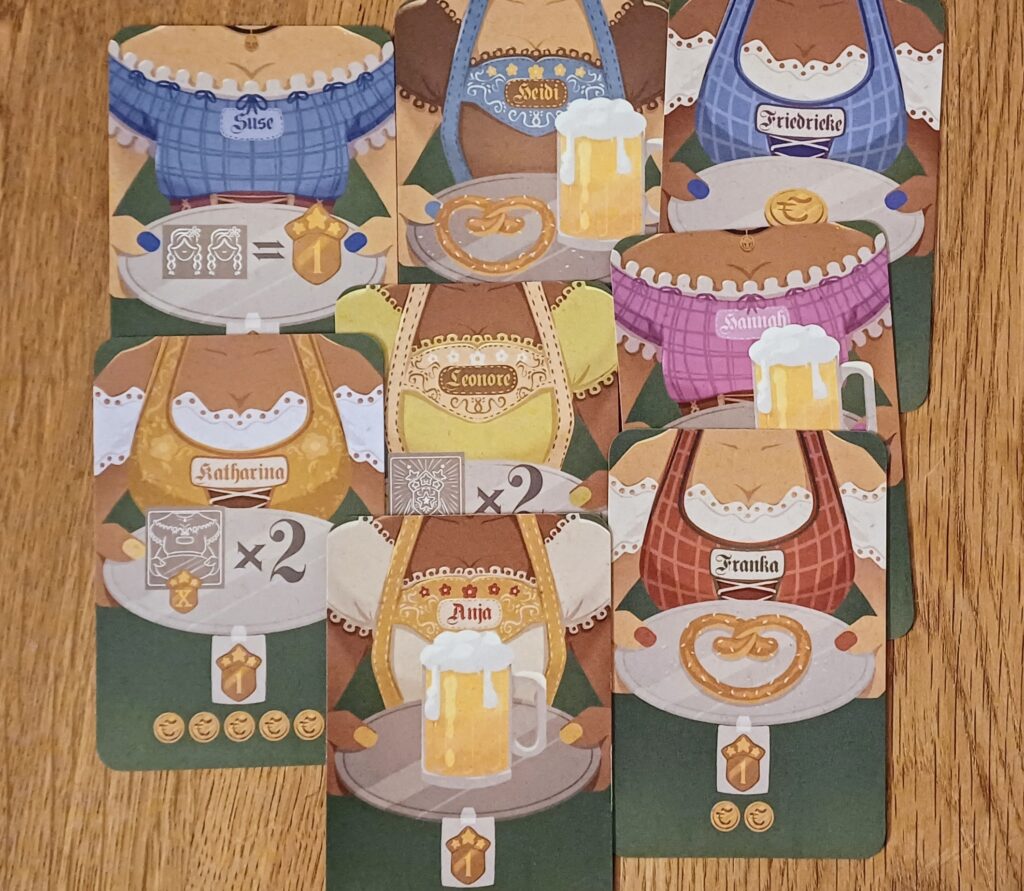
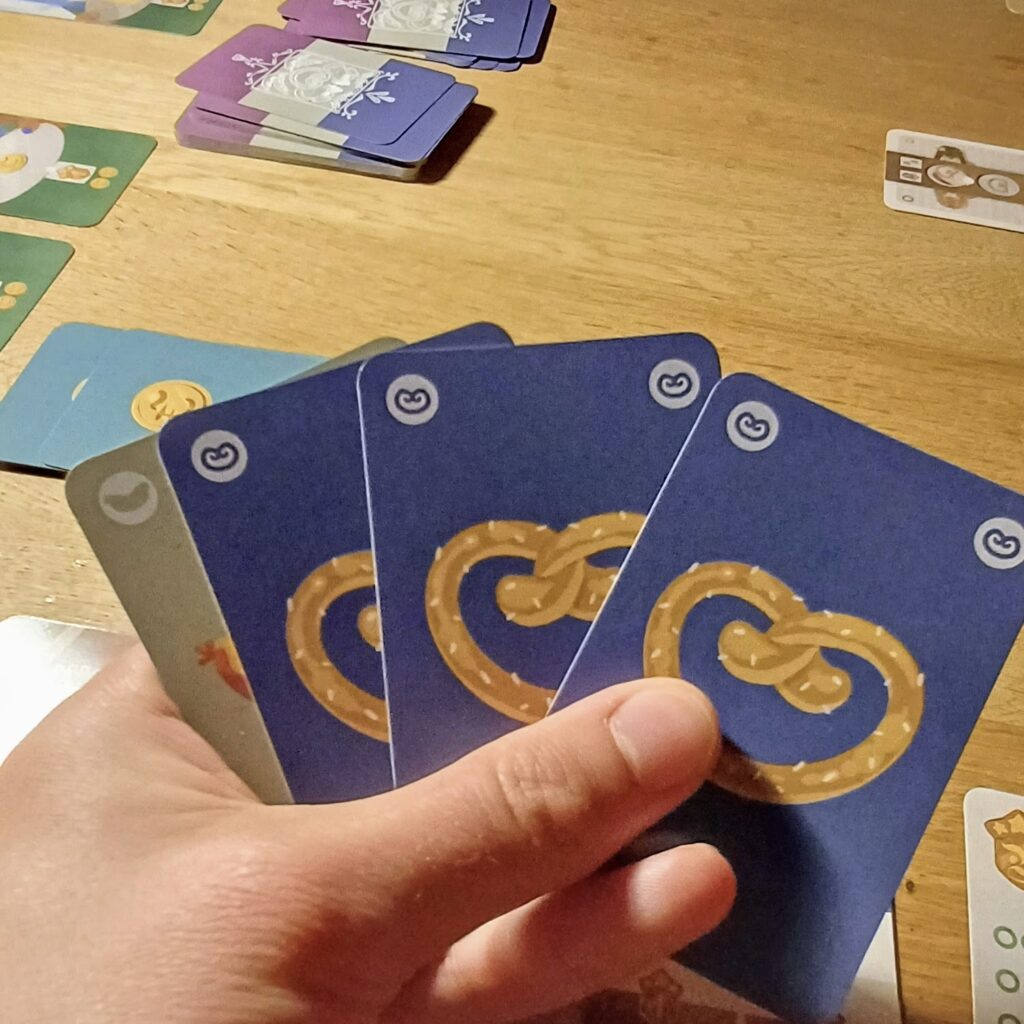
A player has drei options:
- Serve guests
A beer table card is bought by paying for the products on the plates. For each beer table card, the player receives one victory point and two coins. The player may lay down the beer table card as desired. When the fourth card in a particular row is laid down, that row is closed. After the turn, the hand is replenished to again four cards. Note: coin cards also enter the hand and therefore count towards the maximum of four hand cards - Hiring a hero
Heroes can be hired from the market. The price for hiring a hero is a certain number of coins, indicated on the hero card. Each hero has a speciality. For example, Heino ensures that the player already has at least one pretzel and therefore has to pay one pretzel less, the same goes for Bruno but for beer. Different, for example, is Karl who provides a discount of two coins for each subsequent rental. - Back to the kitchen
If a player does not want to or can’t take a beer table card or hero card, the player may choose to discard 1-4 product cards from his hand to take the same number of product cards from the set pile.
Points can be earned by laying beer table cards, having coin cards and (bonus points from) hero cards, and completed goals from goal cards. The goal cards always reflect how the guests are positioned on the side of the beer table where the Spieler in question is sitting. For example, a goal might be to place as many sets of red guests next to each other as possible. The game ends when the entire festival is full or when all product cards have been taken from the covered pile.
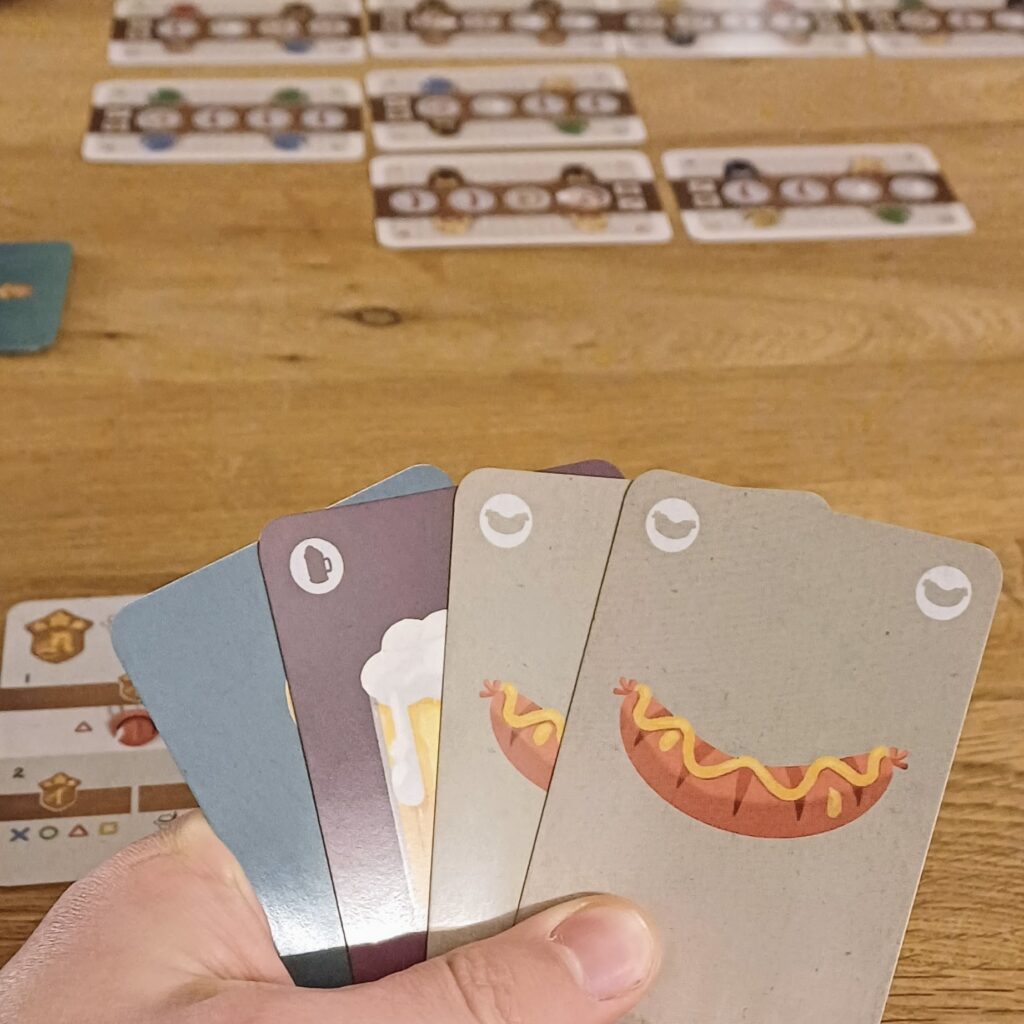
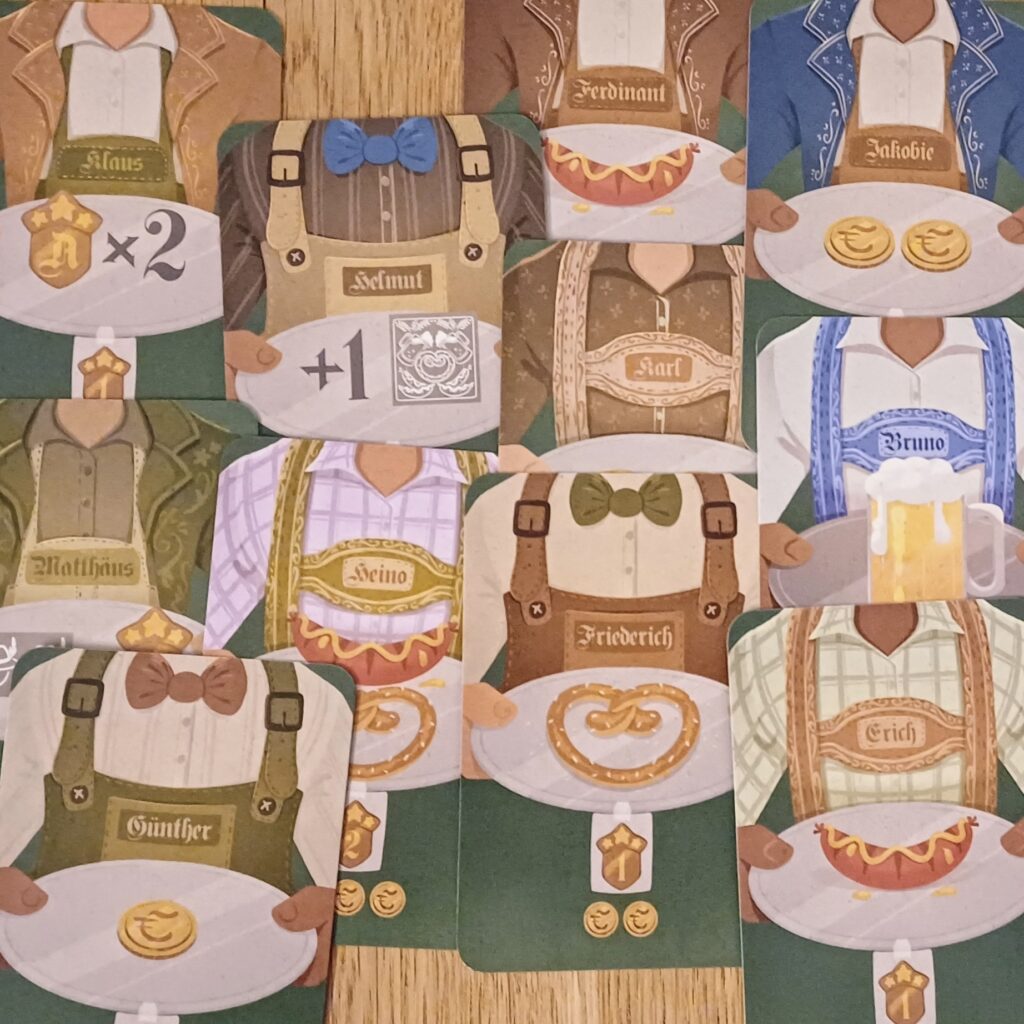
Heroes of Oktoberfest is a well-conceived, compact two-player card game where you think beforehand that it is a card game with simple rules, particularly focused on returning to the theme. And although the theme is prominent and all the cards are imbued with it, there is a great deal of tactics and strategy in the game. Points can be scored in various ways, while at the same time taking care not to help the other player. Easy to get on the table, but with plenty of game tactics.
Tschüss!
